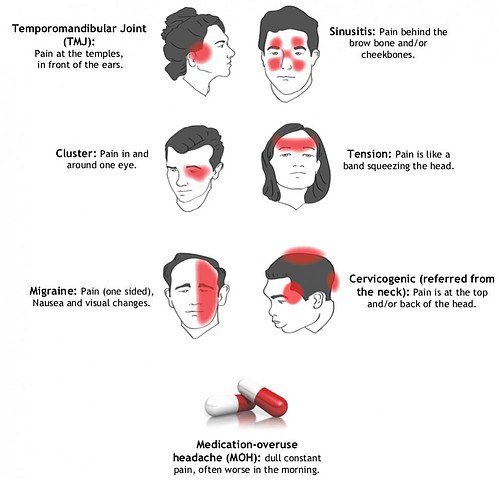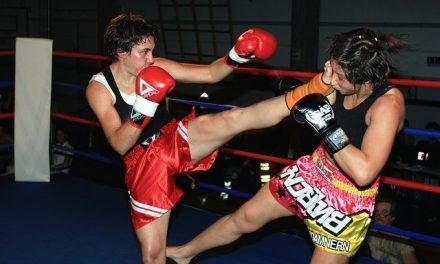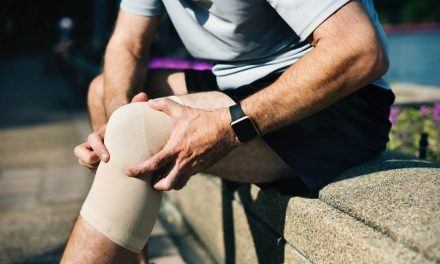If you have ever experienced any neck pains, then you would be having many questions for me. For example, what all we need to take care so that we can stay away from neck-related issue? So how can we prevent neck pain and Stiffness? Answers to all those questions are below in detail.
However, the primary focus of this article is to answer the question ‘can neck pain cause headaches?’, it would be best to identify neck pain symptoms better, so we can easily distinguish the neck pain from headaches and cervical headache.
Before anything, let’s find out what neck pain really is.
What is Neck Pain?
Neck pain is one of the commonest health problems in today’s world. Generally, it starts due to the wrong posture like bending towards the screen while working on the computer or using mobile for long hours.
In today’s time, it is not easy to save neck from random pains and stiffness. Not only digital devices, but there is also more culprit, which is responsible for neck pain.
Sometimes neck pain is so severe that it becomes difficult to do any work. This problem of neck pain and stiffness spreads from the neck to the shoulder and even to the entire arm. Often such pains occur suddenly. For example, when you woke up in the morning, you suddenly felt that the neck bones had become stiff. And, the neck becomes difficult to bend in any direction. Severe pain may occur, and the area around the neck feels hard when pressed by hand.
The problem of cervical spondylitis occurs after forty years, but now young people are falling prey due to wrong ways of getting up, sleeping and general day posture. This pain, given it is caused by a postural disorder, is also called a mechanical pen.
Let’s find out signs and symptoms of neck pain a bit more detail.
The Symptom of Neck Pain
There are many symptoms of neck pain. If you experience any of the below mentioned signs and symptoms, you are likely to be a victim of neck pain.
- Difficulty in stretching neck muscles.
- Neck muscle cramps.
- Difficulty to keep the head in one place for long periods of time (for example, while using the computer, driving, or working).
- Pain or difficulty moving your head.
- Headache
- Fever with neck soreness. (Remember, fever can lead to hallucinations)
- Stiff-Neck
- Throat pain
- Neck tenderness
- Weakness in the arm or shoulders.
Tip: Above symptoms should associate with neck pain or discomfort to call it a ‘neck pain’. For example, if you have signs of an infection (e.g. fever, throat pain) with neck pain, it is possible that viral flu, ear infection, tonsillitis or pharyngitis causing your neck pain.
Other Symptom associated with Neck Pain
Often neck pain becomes worse with the movement of the neck or turning the head.
Neck pain can arise in different faces, instead of ‘classic pain’ sensation. Other symptoms associated with neck pain include:
- Tingling,
- Tenderness,
- Numbness,
- Severe pain,
- Motion difficulties,
- Fullness,
- Neck lymph node (gland) swelling,
- Swishing sounds in the head, and
- Dizziness or lightheadedness.
Neck pain can also be related to symptoms of non-muscular-only medical conditions such as:
- mild or severe headache,
- facial pain,
- shoulder pain, and
- arm numbness or tingling.
These related symptoms are sometimes a result of nerves becoming pinched in the neck.
Depending on the condition, often neck pain can be accompanied by symptoms such as upper back pain and/or lower back pain. Or, as an inflammation of the spine from ankylosing spondylitis.
Tip: Sciatica is a common reason for lower back pain and leg pain. Here are the lists of causes for upper leg pain, knee pain, calf pain and foot pain.
What causes neck pain?
The neck pain is called cervical pain in the medical language.
The problem of neck pain is even more if its severity continually increasing. Due to poor body posture, there is a possibility of continuous tension on the neck muscles.
The ever-growing trend of computers has made this problem more pressing If no treatment is taken in time.
Remember, the neck pain is not limited to the neck only, but it also can spread to other parts of the body.
The number of people who complain about neck pain is increasing rapidly nowadays. If ignored, the consequences can be severe.
Neck pain and spinal conditions
Cervical pain may also occur due to problems in the spinal joints and discs of the cervical spine passing through the neck. This is due to wear and tear in the bones and cartilage. Apart from ageing, there are many more reasons like a neck injury can cause cervical spine conditions such as disc protrusion,
disc prolapse or disc bulging.
Tip: A bulged disc can heal on its own if you stick with recommendations (noted in the liked article).
Neck ligaments are also responsible for neck stiffening due to lack of physical activity, a prolonged holding of your neck in an uncomfortable position, etc.
Neck pain with head and face pain
Some people can experience severe pain in the neck due to ‘neck condition’ associated with a head and face difficulty in performing their daily tasks.
Apart from this, there can be other reasons for the head, face pain associated with neck pain.
- Stretched muscles due to the frequent use of computers and mobiles, primarily due to wrong sitting position
- The wrong neck pose while reading or working
- Break up in the neck joints due to ageing
- Neck bones damaged due to osteoarthritis
- Stretching of muscles and tissues or sprains
- Deformed vertebrae or spinal discs due to accident or injury.
- Sleeping in an uncomfortable position. (Do you or your loved ones struggle to sleep through the night? My last article explains your options)
- Jerking the neck while exercising or doing rigorous workouts.
Remember, most neck pains are cured by exercising regularly and keeping your posture right. Let’s look into neck pain remedies now.
Tip: Increase muscle elasticity to prevent the likelihood of muscle sprain or stretched muscles.
[et_bloom_locked optin_id=optin_3][/et_bloom_locked]
What helps Neck Pain? And, what are the Remedies for Neck Pain?
If your neck pain is minor, it can be corrected by making lifestyle changes, but if the situation becomes dangerous, help from an orthopaedic surgeon or spine surgeon is necessary.
X-rays, CT scans and MRIs can easily identify neck-related organs, muscles, bone or spinal disc conditions, and can be corrected with proper treatment.
Many medications, using drugs and injection, are prescribed to reduce the pain caused by damaged nerves, swelling of tissues and muscle spasms.
Steroid injections are given to reduce pain. Lifestyle advice is also helpful. Surgery is an option if physical therapy and medications do not cure cervical pain.
Sleeping in a wrong position, sleeping on a ‘cheap’ mattress, the tension on your neck from prolonged neck bending can cause neck pain. In addition, neck injuries and muscle strain can be a root cause of neck pain in many individuals today. It is necessary to treat, at the beginning of the symptoms itself, to prevent it from increasing and ultimately worsen restricting your day to day activities.
Tip: Stick with the best dressing when treating wounds and injuries.
There are some home remedies, with the help of which anyone can get relief from neck pain. Let’s explore them now.
1. Exercises for neck pain
Anyone can easily get instant relief in neck pain by doing some exercises.
Here is an effective neck exercise – just follow the below steps to find out its effect.
- Tilt your head forward and backwards, and then tilt it to the right and left.
- When your muscles are tense, tilt your head completely to the right and then to the left. During this time, there may be a little pain, so do it comfortably without stressing it too much.
- Repeat this exercise at least 20 times, daily. For better results, do this exercise every few hours for a few days.

2. Do yoga for neck pain
Stretching also makes the muscles feel stretched. Therefore, pay attention to what is causing you stress
and try to remove that cause.
For this, you try to relax your tension levels with the help of yoga.
The following yoga positions believed to help with neck pain. You can adapt it for your yoga routine too.
Bhardwajasana
– This is a very useful ‘asana’ for relieving neck and shoulder pain.
Marjarasan
– It is also known as ‘Kat Pose’. This ‘asana’ will strain your spinal and back muscles, which will relieve neck pain too.

Tip: Did you know Yoga is a recommended exercise for diabetes too.
3. Essential Oil for neck pain
Here are the vital essential oils which could ease your neck pain.
Peppermint
relaxes the muscles. It has anti-inflammatory properties (to fight against inflammation), which helps in relieving headaches and body aches.
At the same time, lavender oil calms the brain and muscles, thereby relieving physical and mental stress.
Basil oil
has natural antispasmodic and analgesic properties, which help reduce neck pain.
Cypress oil
reduces muscle spasm and pain. It also stimulates blood and lymphatic circulation.
Tip: Essential oil can help to relieve diabetes pains too.
4. Acupuncture for neck pain
Acupuncture is a method in which small needles are placed on the site of pain. This method is greatly adopted to relieve pain.
When acupuncture is done on any part of the body, it improves the blood circulation, which helps with relieving pain.
To receive some acupuncture sessions, you have to contact an acupuncture therapist though
5. Neck massages to treat neck pain
Massage helps in relieving any kind of pain. Massaging the painful body parts and the surrounding improves blood circulation. Apart from this, massage also helps with sleeping.
Caution: If you have moderate to severe pain, do not massage or rub the affected part. You are better off talking directly to a doctor first, before considering a massager.
Tip: The ‘themes’ on tips for finding a good doctor to treat diabetes, may be relevant to you if you are on a search for a good doctor to treat neck pains and headaches too.
6. Ice or warm pack for neck pain
Using a cold or warm pack can be useful as well. Here are the steps.
- Place pieces of ice or warm in the towel and place it on the painful part. Instead, you can place the ice or warm pack in the affected area.
- Let them sit on the painful part for a few minutes.
- Apply daily.
7. Vitamins and minerals for neck pain
Here are the vitamins you should consider adding to your lifestyle and eating if you have neck pain.
- Vitamin-D is essential for the development and health of bones. When vitamin D begins to subside, body muscle and joint pains, including a neck pain can arise.
- The Vitamin B complex is a natural analgesic agent. It reduces pain and inflammation in neuropathic
and musculoskeletal areas.
- Vitamin-C is an anticipative agent, which helps in reducing pain. It also contains antioxidants, which reduce pain.
- Magnesium also relieves muscles.
8. Neck collar for neck pain
Neck collar supports the neck and helps in handling the weight of the head. A neck collar can help to keep the neck and spinal bones in line, especially if your neck pain is following an injury.
[et_bloom_locked optin_id=optin_3][/et_bloom_locked]
9. Have a rest
If you have moderate to severe neck pain, then you should take a break from your work and regular lifestyle.
Or, at least you have to change your routines considerably to support neck healing. For example, while working in the office, get up every hour and move your neck slightly, following the exercises noted earlier.
Always pay attention to your posture. This method helps in relieving neck pain.
10. Eat healthily
Also, avoid eating junk food and include green vegetables and fruits in your diet.
11. Maintain a healthy weight
Your excess weight also causes muscle strain, and as a result, increase the risk of neck strain and pains.
How to avoid a Neck Pain?
Here are some tips to avoid neck pain.
- Keep your posture right while you sit, walk, work on the computer, and exercise regularly.
- Avoid excessive use of mobile phones. Do not talk by holding the mobile phone between your ear and shoulder. This cause unnecessary tension on your neck muscles.
- To keep your bones, muscles, and cartilages healthy, consume plenty of calcium and vitamin D.
- Use the right pillow, mattress to sleep and stick with a healthy bed posture.
Given by now, we have learnt a lot about neck pain, let’s turn around at headaches.
Remember, the ultimate goal of my article is to address if neck pain can cause headaches. Hope you remember?
Let’s start with defining ‘headache’.
What is a Headache?
‘Headache’ – as soon as we hear this word, we go back to the memory of our last headache. The head pain that begins mildly and gradually, and then increases slightly and sometimes up to a point it is unbearable. Sometimes it happens that we do not get relief from headache even after taking medicines.
Many people consider regular headache to be the truth of their lives. But there is a cure for this problem, and the go-to treatment is ‘meditation’. As we all know, most of the random headaches will last only hours and you can easily get rid of headaches through meditation.
Headache is a sign of stress or emotional pain.
What causes a Headache?
Headaches arise from tissues and structures that surround the brain. It can also arise from a medical condition, such as from migraine, high blood pressure, diabetes, anxiety or depression.
Further causes for headache include:
Fatigue,
Sleep deprivation and insomnia,
Effects of drugs,
Viral infections,
Noise,
Common cold,
Head injury,
Intake of icy food or beverages, and
Toothache.
Tip: Regardless of the root cause of diabetes, if you do not manage your blood glucose levels well, you could experience a hypoglycaemia or hyperglycaemia episode. Both can result in a headache.
Tip: Did you know garlic could lower blood pressure, spending on your current stage of hypertension.
Types of headaches
Headache can occur in any head part, on either side of the head or in just one place ‘localised’.
Based on the International Headache Society (IHS), there are two types of headaches.
-
Primary Headaches
The majority, 90% of all headaches are affected by primary headaches.
The primary headache usually starts for the first time when people are 20 to 40 years old. The most prevalent types of primary headaches are tension headaches and migraine.
Migraine is a type of headache that usually occurs only in one part of the head. Migraine is usually accompanied by photophobia (sensitivity to light) and phonophobia
(sensitivity to sound). Migraine occurs due to changes in chemical activity in the brain.
We have an in-depth article about migraine headache triggers and symptoms.
-
Secondary Headaches
Secondary headaches occur when many types of diseases and circumstances stimulate our head’s pain-sensitive nerves. These diseases can be of many types, for example;
A hangover,
Brain tumour,
Blood clots,
Brain freeze,
Eye disease,
Influenza,
Toothache.
Why does a Headache occur?
A headache can occur due to many reasons. Here are the main reasons for a headache.
Reasons for Headache, and What causes a headache?
-
Stress
When the body and mind issues become challenging to handle, then it takes the form of headache.
Tip: Meditation has a ‘counter-stress’ effect on stress. In other words, meditation reduces stress. The more and the more time you meditate, the more stress goes away from you. Overall, it recommended meditating at least 10-20 minutes daily.
-
Exhaustion of mind and body
Excessive physical and mental exertion can result in headache, given there is a ‘lot’ of work to be done at home and at work, throughout the day.
Tip: At times of excessive exhaustion, meditation can refresh you and boost you with energy and focus. Your smile returns as you meditate at least 20 minutes in the evening. Meditation can give you complete relaxation so that you can spend a delightful time with your family.
-
Unbalanced physiological system
You must have noticed that when your stomach is upset, you start getting headaches. All the parts of our body are well connected, so any imbalance in one part affects the other.
Tip: That’s why I say that any ‘malfunctioning’ of a body part or system can lead to a ‘headache’. Yes, as such, neck pain can lead to headache too.
-
Poor blood flow to the head
Due to reduced blood flow in any part of the head, headache can occur.
So in such cases, any exercises that can increase blood flow in the brain area would help.
Tip: Meditating 10-20 minutes twice a day not only gives deep relaxation to the body and mind but also increases the flow of blood in the head. Increased blood flow to head areas reduces the likelihood of headache.
-
Insufficient sleep and insomnia
Working long hours, excessive work habits or addiction to TV and the internet are all excuses for sleeping late at night. Although it is not good to make them a habit and sleep late at night, sometimes that becomes unavoidable. When a project is expiring, or a client meeting is late at night, there is not much we can do about it.
While there are many reasons for poor or interrupted sleep, you should remember insufficient sleep and insomnia can be a cause of headache.
-
Poor appetite
Poor appetite can be a result of many health conditions, which ultimately result in malnutrition. Especially with poor appetite, your body could miss critical minerals and vitamins. This can result in random headaches.
-
Excessive noise
We all must have experienced excessive noise at some time. Some of us are not able to bear the noise at all, and with exposure to such loud soon start complaining of a headache.
-
Dehydration and drinking an insufficient amount of water
-
Motion sickness
Any activity involves continuous motion can lead to motion sickness. The classic example of motion sickness is when travelling on a cruise.
While motion sickness, itself difficult for your body, expelling most of your stomach content (vomiting), it can easily lead to a headache.
-
Excessive use of electronic equipment, including using the phone for long hours
This is a condition that is often difficult to avoid in the modern digital era. We do all these things in our lives every day, taking client calls or from friends. Sometimes it becomes a headache to talk on the phone for too long.
-
Thinking too much or overthinking
There is a solution, stop thinking more of the things you can’t change. But it becomes inevitable to think many times of such issues for many.
The stress of everyday life, work pressure, family pressure, relationship disputes, how should we not think between all these. But you can definitely take some time in the day to relax by closing your eyes. Keep the outer world separate for some time, stay with you, use it as your time and see the difference. This will help you to avoid over-thinking related headaches.
Tip: Here are signs of stress in men, women and children. They are not identical!
[et_bloom_locked optin_id=optin_3][/et_bloom_locked]
What helps with Headaches? Remedies for Headache
Here are some valuable tips on overcoming a headache fast, including some natural remedies.
- To get relief from headache quickly, you can apply the area of pain with ice cubes or cold pack. Apart from this, you can also massage with cold oil.
- Lemonade, tea and coffee also may provide relief.
- Sandalwood paste when applied on the forehead believed to relieve headache.
- Regular massage with almond oil believed to relieve headache.
- Mixing a pinch of cinnamon in milk also believed to provides relief from a headache.
- Sleep for at least 6 to 7 hours daily and wake up early in the morning based on your body’s biological clock, should give some relief too
- Do meditation
and exercise daily. - Eat healthy food on time.
- Also, drink 10 – 12 glasses of water a day. Keep yourself well, hydrated.
Tip: If you have diabetes, depending on the severity, stick with either type 2 diabetes food list, reactive hypoglycemia food list or diabetes gastroparesis food list.
Neck Pain and Headache, The Co-relation
Neck pain and headache are generally correlated.
Can Neck Pain cause Headaches?
One of the key questions we tried to answer in this article is ‘can pain in your neck cause headaches?’. Let’s see what’s my experience says about Neck Pain causing Headaches, Neck Pain causing Neck Headaches, Neck Pain causing Tension Headaches, and neck pain causing migraines.
Neck Headache
Generally speaking, in this case, the cause of the headache is due to neck pain. This is also known as Neck Headache. In other words, a headache commonly caused by Neck Joint Problem.
Tension Headache
Tension Headache is another form of Headache Which is rooted in the neck, resulting from muscle tension and trigger point irritation.
Usually, a tension headache occurs when the neck and scalp muscles become tense or contracted. Again, such muscle contractions can be a response to stress, head injury or anxiety.
Can Neck Pain cause Migraines?
Yes, neck pain can cause migraines.
Can Headache cause Neck Pain?
People with regular headaches and migraines have a high chance of neck pain, causing scientists to debate over the questions whether ‘neck pain is a symptom of headache?’ or ‘if the neck pain causes the migraine?’.
A recent research study findings suggest that neck pain associated with migraine cannot be attributed to increased trapezius activity
during rest, mental stress, and physical activity or prolonged muscle activity. Therefore, neck pain should be seen as an accompanying symptom of migraine.
When to worry about Cervical or Neck Headache?
There are many reasons which can cause Headaches. Sometimes, it is difficult to identify the cause of the headache. But, if you are getting both neck pain and headache, then there’s a good chance it’ to be a cervical headache.
Symptoms of Cervical Headache
These are the symptoms you should watch for to capture cervical headache fast.
- Pain at one side of your head or face
- Head pain as you cough, take a deep breath or sneeze
- A sharp pain that can last for hours or days
- Neck stiffness associated with the pain
- Pain that stays in one spot for a while, like the back of the head pain, front of the head pain, or side of your head or around the eye pain.
Cause of Cervical Headache
There are many reasons which can cause a cervical headache. Some of the main reason is mentioned below.
- Problems with your neck bones, cervical spine joints or neck muscle.
- Due to forward head motion – where people hold their head in front of bodies.
- Due to fall, injury and arthritis.
Can cervical neck pain cause headaches?
Yes, it can.
[et_bloom_locked optin_id=optin_3][/et_bloom_locked]
Summary
People ignore it when their neck hurts. If you are also one of them, chances are you need to pay more attention to neck pain. Because neck pain can also be caused by cervical disease, which can lead to headaches called Migraine or Vascular Headaches.
The common bone diseases of the neck causing headache is called Cervical Degenerative Disc. Due to this disease, a sudden sharp pain starts in the neck. This disease is seen more in those who continuously ignore this pain. This disease is rarely seen in men, but it catches women very soon.
Often people complain that there is a sharp pain in their neck while turning and moving their neck. If you also see such symptoms, then do not ignore it and see your doctor. And, you could try some of the home remedies and treatment in this article too.










Recent Comments